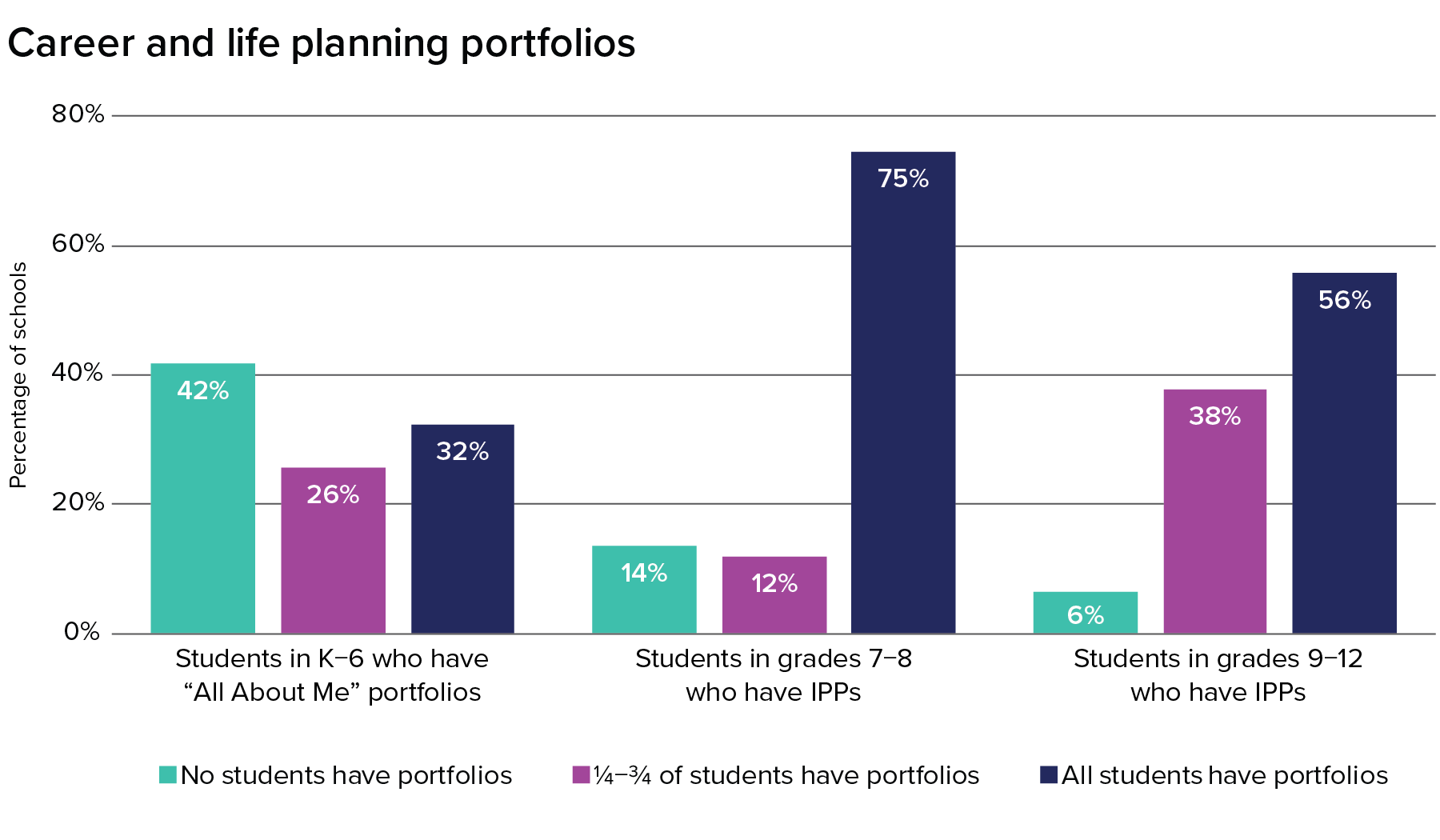Students missing out on vital career/life planning support
New report reveals gaps & overlap in provincial policy
For immediate release
Toronto (March 1, 2017) – A new report, released today by People for Education, reveals that the majority of elementary schools and nearly half of high schools have been unable to implement the province’s education, career and life-planning program.
The report – based on survey results from more than 1000 schools – points to a number of challenges, including a lack of guidance counsellors, insufficient support and training, and the impact of multiple, overlapping policies and initiatives.
Schools unable to implement mandatory aspects of policy
 Ontario’s careers policy, Creating Pathways to Success, includes a number of mandatory components, including career and life-planning committees in every school, portfolios for every student from kindergarten to grade 12, and professional development for teachers.
Ontario’s careers policy, Creating Pathways to Success, includes a number of mandatory components, including career and life-planning committees in every school, portfolios for every student from kindergarten to grade 12, and professional development for teachers.
But of the mandatory components in the policy, the report shows that:
- 15% of elementary and 39% of secondary schools have career and life planning committees.
- In only 34% of kindergarten to grade 6, and 56% of secondary schools, do all students have education and career/life planning portfolios.
- 23% of elementary and 40% of secondary schools report professional development on career and life planning is available to their teachers.
Guidance counsellors required
The report says that only elementary schools with grades 7 and 8 (where students must choose their high school courses) appear to have had some success implementing career/life planning portfolios. But even in those schools, principals point to the difficulty of implementing the program without guidance counsellors. Only 23% of schools with grades 7 and 8 have guidance counsellors, and even then, most are part time.
In high schools – where guidance counsellors provide key support for education, career and life planning – the ratio of students to guidance counsellors averages 380 to 1. In some schools it is as high as 600 to 1.
A principal in an elementary school in Hamilton says, “We really need additional funding to have guidance counselors available at the elementary level to facilitate proper life planning and transition to high school.”
“The pace of change is speeding up. Nearly one-third of today’s school children will go on to be employed in occupations that don’t currently exist when they graduate from high school,” says Bruce Lawson, President of The Counselling Foundation of Canada. “It is vital that society – and our schools – equip our future generations with the skills and resilience to help them navigate the ever-changing pathways they will face. Students need teachers who are skilled in career guidance to support them in understanding their possible futures.”
Recommendations for change
According to Annie Kidder, Executive Director of People for Education, “The government has made a commitment to ensuring that Ontario’s future workforce – our children – are prepared for lives that will have multiple career paths. But the findings in this report show that schools are struggling to implement the strategies, and that many students are missing out. While we laud the province for its ambition, we are concerned that schools are suffering from a certain sense of ‘initiative overload.’ It’s time to rationalize programs, and to make sure we have the staff and infrastructure to support them.”
Among the recommendations in the report:
- Use the Creating Pathways policy, portfolios, and professional development as an anchor for other strategies such as the province’s upcoming Well-being Strategy and the recommendations from Ontario’s Highly Skilled Workforce Expert Panel.
- Link Ontario’s compulsory 40 hours of community involvement for high school students more closely to explorations of career pathways.
- Develop consistent language to link the Creating Pathways portfolios to Ontario report cards.
- Set broader goals for Ontario’s education system – beyond math, reading and writing – to ensure students are acquiring essential skills and competencies demanded by the rapidly changing job market, the knowledge economy, and the increasingly complex global reality.
- Make changes to the funding formula to ensure that students from grade 7 to 12 have adequate access to guidance counsellors.
For more information, please call People for Education at 416-534-0100.
